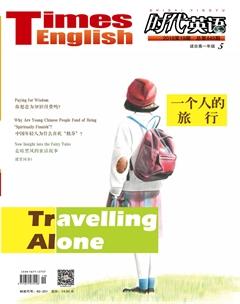你愿意为知识付费吗?
導读:“知识付费”是最近相当热门的消费新潮流。越来越多的中国人愿意为在线的优质内容付费,利用空余时间学习一点新技能,但这种热门的学习方式也引发了一些争议……
Zhang Zhiyuan, who works in the film and television industry, uses the De Dao App when he goes to work every day, according to Xinhua News Agency. The App offers written articles and podcasts from famous personalities that the user must pay for, with topics ranging from music to economics.
Zhang is not alone. By May 2018, De Dao had more than 20 million users, according to Bloomberg.
The De Dao platform is just a small part of Chinas knowledge economy. These days, more Chinese people are willing to pay for knowledge online than before, according to an article published by AFP in September, 2018.
Ximalaya FM, another popular online learning platform, had about 450 million users as of January 2018, Zhou Xiaohan, the companys vice president, told Peoples Daily. The platform allows people to pay for and listen to online learning courses.
Many Chinese people used to be unwilling to pay for content online. However, many Internet users attitudes have changed since they began to see quality content as valuable, wrote China Daily.
Lou Meijing, an analyst from iiMedia Research, a Beijing consultancy, told Financial Times that many Chinese people can get free content online. However, they hope to get better one when the free content cannot meet their demand.
In fact, 75 percent of Internet users are happy to pay for quality content, according to a 2017 report by Chinese science news website Guokr and Internet company NetEase.
Meanwhile, Chinese people, especially the young, are suffering from so-called knowledge anxiety. In such a rapidly changing society, people are afraid of not being able to get the latest information and feeling left out, according to The Wall Street Journal.
“In big cities, people are too busy to read books and watch movies. Famous personalities can teach you knowledge that lets you seem as if you have read the book or watched the movie yourself,” De Dao user James Lu told the Financial Times.
However, this way of learning has also been criticized.
“Knowledge is not the same as information. Its certainly not something that can be gained by watching a few television shows, any more than it can be gained by reading a few books or listening to a few podcasts,” Sixth Tone reporter Tao Lixing noted.
He believes that to get real knowledge, one has to ask questions, analyze and reflect, rather than rely simply on Internet content.
In spite of this, it seems that paying for knowledge online is a popular phenomenon that shows no signs of slowing down.

